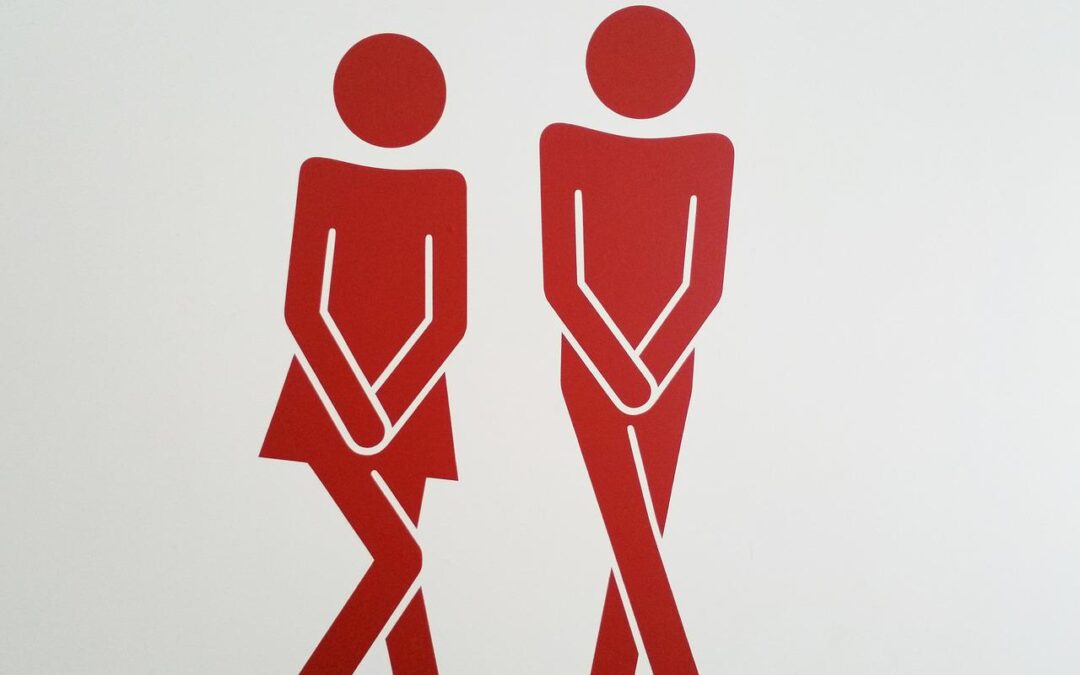Anxiety and the Bladder
At Old Town Hypnotherapy it is not uncommon for clients to present with symptoms of anxiety that are focused on their bathroom behaviours. The fear of needing a toilet and not having access to one can have a debilitating effect on daily life. Sufferers may be restricting or opting out altogether on activities that should be fun because of the increased burden of coping, embarrassment, and low self-esteem.
Why does this happen and what can we do to help alleviate it?
Most of us have been in a situation where we feel nervous or apprehensive and our reaction is to run to the nearest bathroom. We know that stress or anxiety can affect our bladder (and bowels). There are two types of ‘anxious bladder’. The first is instant urination and the second is frequent, and sometimes urgent, urination.
Instant urination
Instant urination is an instant, involuntary emptying of the bladder and although rare, is a common symptom of severe phobias, PTSD and even panic attacks. This is a reaction to profound fear or absolute terror which overloads our nervous system as it activates our ingrained fight, flight or freeze response and ‘switches off’ our bladder control mechanism. Simply put, the body has more important things to do in that moment of survival than to waste energy and resources holding onto urine. Cavemen did not grapple with issues such as embarrassment but in modern life, instant urination can cause significant emotional distress.
Frequent Urination
The second, more common anxiety related urination issue is frequent urination, needing to urinate more often than normal without necessarily drinking any more. We know that when we feel anxious, we release neurotransmitters, such as adrenalin, that prepare our body to face the real or imagined threat we are preoccupied with. This causes muscles in your body to tense – read to fight or run and this tension throughout your body puts pressure on your bladder. Your bladder is essentially a muscular sac, so it tightens when we feel anxious. Your pelvic floor muscles also tighten, compressing your bladder. The result is a sensation of needing to urinate. Another neurotransmitter released during times of stress is called corticotropin-releasing factor (CRF). CRF directly effects the bladder by increasing bladder contractions.
What we know about people who suffer with anxiety is that they are hypersensitive to any type of change, both in their external and internal environments. This hypersensitivity may mean they notice a mild need to urinate that when relaxed isn’t registered, thus causing a more frequent feeling than normal to visit the bathroom.
We also know that anxiety alters your body chemistry, and all systems of the body are affected, including digestion. It is possible that this change causes more fluids to be passed through your body.
There are further theories as to why we experience frequent urination at times of stress:
For example, the theory that with less urine being held in our bodies, the lighter we are and the faster we can theoretically run from the threat.
It could be that frequent urination is a lesser version of instant urination, the fear is not intense enough to result in instant urination but enough to send messages that we need to empty frequently.
Whatever the cause these changes in function may result in feelings of loss of control, shame, frustration, and embarrassment. We can then get into a catch 22 situation – the anxiety of not being able to find a toilet in time increases your need to urinate and the suffer develops a fear around finding a toilet in time, often spend significant time planning their route to ensure they can access facilities or opting out altogether. Over time this can lead to further mental health difficulties such as depression.
How can Solution focused Hypnotherapy help?
First step, go to your GP to rule out any underlining medical issue.
If your condition is diagnosed as anxiety induced, you may consider ways to reduce your daily stress burden to help alleviate the anxiety. In clinic we would firstly determine if we were dealing with a simple and isolated fear or a more complex anxiety issue. We would work with an individual to make healthy changes, both in their daily lives and in their thinking. We would focus on the 3 p’s, the three maintenance areas of mental health – Positive activity, this includes exercise and being purposeful and productive in your daily routine. Positive interaction: spending time with people who make you feel good and positive thinking: learning to choose your thoughts carefully. The 3 p’s encourage healthy brain chemicals which in turn help us to regain control over distorted thoughts, reducing our overall stress burden. We would use hypnotherapy techniques to help the brain reclassify outings outside of the normal routine as safe, so the body can remain in a relaxed state and the need to urinate normalises.
If you would like further information, we offer completely free, no obligation initial consultations, either in our Swindon clinic or our newly opened Cheltenham clinic, or online.

